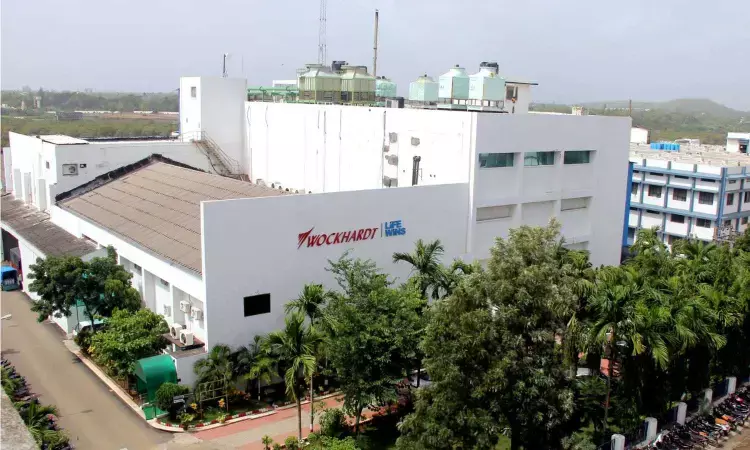- Home
- Medical news & Guidelines
- Anesthesiology
- Cardiology and CTVS
- Critical Care
- Dentistry
- Dermatology
- Diabetes and Endocrinology
- ENT
- Gastroenterology
- Medicine
- Nephrology
- Neurology
- Obstretics-Gynaecology
- Oncology
- Ophthalmology
- Orthopaedics
- Pediatrics-Neonatology
- Psychiatry
- Pulmonology
- Radiology
- Surgery
- Urology
- Laboratory Medicine
- Diet
- Nursing
- Paramedical
- Physiotherapy
- Health news
- Fact Check
- Bone Health Fact Check
- Brain Health Fact Check
- Cancer Related Fact Check
- Child Care Fact Check
- Dental and oral health fact check
- Diabetes and metabolic health fact check
- Diet and Nutrition Fact Check
- Eye and ENT Care Fact Check
- Fitness fact check
- Gut health fact check
- Heart health fact check
- Kidney health fact check
- Medical education fact check
- Men's health fact check
- Respiratory fact check
- Skin and hair care fact check
- Vaccine and Immunization fact check
- Women's health fact check
- AYUSH
- State News
- Andaman and Nicobar Islands
- Andhra Pradesh
- Arunachal Pradesh
- Assam
- Bihar
- Chandigarh
- Chattisgarh
- Dadra and Nagar Haveli
- Daman and Diu
- Delhi
- Goa
- Gujarat
- Haryana
- Himachal Pradesh
- Jammu & Kashmir
- Jharkhand
- Karnataka
- Kerala
- Ladakh
- Lakshadweep
- Madhya Pradesh
- Maharashtra
- Manipur
- Meghalaya
- Mizoram
- Nagaland
- Odisha
- Puducherry
- Punjab
- Rajasthan
- Sikkim
- Tamil Nadu
- Telangana
- Tripura
- Uttar Pradesh
- Uttrakhand
- West Bengal
- Medical Education
- Industry
US tariffs on pharma sector would be counterproductive for Americans, says Wockhardt Chairman

Wockhardt Chairman Habib Khorakiwala said that U.S. tariffs on pharmaceutical products would ultimately be counterproductive for Americans.
The U.S. currently imposes a 10% baseline tariff on all imported goods.
Wockhardt Chairman told ANIthat India supplies 40 per cent of prescription drugs to the United States.
The remaining reciprocal tariffs imposed by the US on dozens of partner countries have been paused for 90 days, except for China. Faced with reciprocal tariffs, as many as 75 partner countries are actively negotiating a trade deal with the US.
"And over the years, we (India) made so much contribution in making products available at a reasonable price (in the US)," said Khorakiwala from Dubai.
"The whole approach would be counterproductive for the American people, mainly because when it is not easier to switch, for medicine, because the approval process by USFDA takes several years," the pharma company boss said.
Against that backdrop, Habib Khorakiwala said he believes that whatever tariff comes on pharma, if at all, a significant part of it will be transferred to the American healthcare system.
On Tuesday night (local time), US President Donald Trump announced that tariffs on the pharma sector were coming soon. The sector has so far been exempted from the tariffs.
Further, Khorakiwala said the cost of putting a pharma facility in the US would be significantly higher.
"And the cost advantage which is available (at present), would be completely reduced. India's success over the years, last 20-25 years in the US is mainly because we could meet the US requirement with the quality they want and at the price which is globally competitive, and that is our Indian strength," Khorakiwala added.
On top of the manufacturing cost, Khorakiwala asserted that the research cost in the US is in multiples to that in India.
"There are two aspects of costs. One is the manufacturing cost. It is about 3 to 4 times more. Second, more important in our industry is the research cost, and that is 10 to 20 times more," he argued.
Ruchika Sharma joined Medical Dialogue as an Correspondent for the Business Section in 2019. She covers all the updates in the Pharmaceutical field, Policy, Insurance, Business Healthcare, Medical News, Health News, Pharma News, Healthcare and Investment. She has completed her B.Com from Delhi University and then pursued postgraduation in M.Com. She can be contacted at editorial@medicaldialogues.in Contact no. 011-43720751
Next Story


